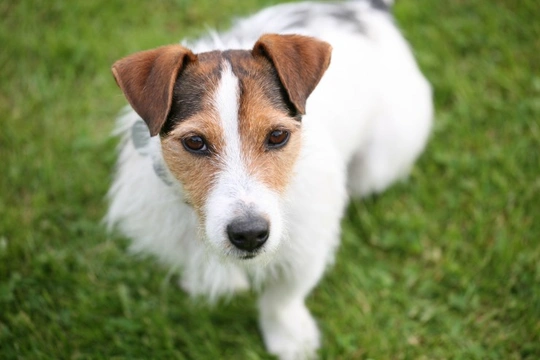
Esophageal Malformations in Dogs
Malformations of the esophagus can cause serious problems for dogs because if the round pipe that goes from their throat right down to their stomachs is impacted in any way, it can make swallowing and digesting any food they consume extremely difficult especially if the abnormality involves a narrowing of their esophagus. The condition can affect any breed at any time in their lives and so far, research has not shown that esophageal malformations have any sort of genetic link although Greyhounds appear to suffer from the condition more than many other breeds.
Symptoms to Watch Out For
When a dog suffers any sort of malformation in their esophagus, they typically display the following signs of there being something wrong:
- They often regurgitate food they've eaten
- Dogs have trouble swallowing food which is clearly visible
- Dogs often yelp when they try to swallow because their esophagus is swollen, inflamed and sore
- Dogs often have good appetites to begin with, but this falls off as their condition starts to get worse
- Weight loss/anorexia
- Muscle wastage in advanced stages of the condition
- An over production of saliva
- Drooling
- Pain when necks are touched even gently
- Aspiration pneumonia - due to difficulty swallowing and regurgitating food
- Abnormal breathing which includes coughing and wheezing
Dogs with the condition tolerate being fed watery food rather than anything more solid because any sort of dry food makes it extremely hard for them to swallow and could aggravate their discomfort when trying to eat.
The Causes
The most common cause of dogs developing the condition is due to them suffering gastroesophageal reflux when they are given any sort of anaesthetic prior to surgery. This is a reverse flow of their stomach contents which flows into their esophagus. Hence, when a dog is due to undergo any sort of surgery, it's essential that they not be fed for several hours before their procedure is due to be undertaken.
However, a dog may experience a gastroesophageal reflux for some other reason which could be disease related. Other reasons why a dog might develop the condition include the following:
- A foreign object is lodged in the esophagus
- Pills or some other medication is stuck in their esophagus
- Chemical irritant ingestion
- Surgery of the esophagus
- Vomiting - because a dog is persistently throwing up their food
- Cancer
- Granuloma - which is a mass lesion that develops as a secondary condition caused by a parasite known as Spirocerca lupi
Diagnosing the Problem
A vet would want to rule out any other reasons why a dog is suffering from any of the symptoms associated with esophageal malformations. Puppies that have been recently weaned may have a condition known as vascular ring anomaly which a vet would need to confirm and they would do so by recommending the following tests:
- A barium-contrast X-ray - a radiopaque liquid is used to reveal any abnormalities in a dog's esophagus
- An X-ray would show if any sort of foreign object has become lodged in the esophagus
- Using an endoscope to look down a dog's throat which is an effective way of seeing if there are any masses or tumour developing in a dog's esophagus
Treatment Options
To begin with a dog with any sort of malformation on the esophagus would need to be hospitalised for vets to carry out the necessary tests. The chances are a dog would be quite dehydrated and as such they would need to be put on a drip to re-hydrate them. Should a dog have suffered aspiration pneumonia or their esophagus is very inflamed, they may need to remain hospitalised so that vets can keep a close eye on their condition. If a dog has suffered a severe case of aspiration pneumonia, they may need to be given oxygen as a matter of urgency. Should a dog not be able to swallow due to the severity of their condition, they may need to be tube fed through the mouth until they can eat on their own again.
Prevention is Paramount
Should a dog need to undergo any sort of surgery, it is essential they not be fed for at least 12 hours prior to the procedure. Other ways of preventing the condition from flaring up include the following:
- To avoid giving a dog certain medication before they undergo surgery
- To avoid feeding a dog late at night - especially if they suffer fom gastroesophageal reflux



